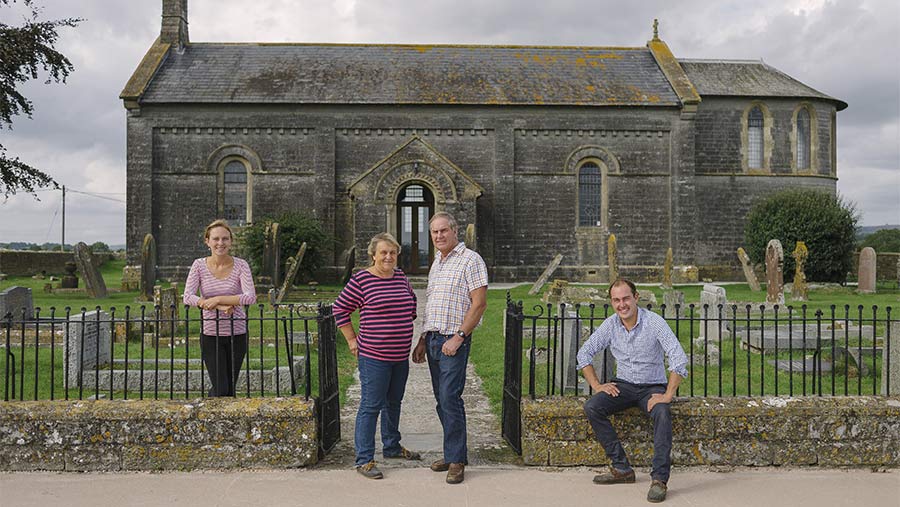Coronavirus: Diversified farms to kickstart rural recovery
 © Jim Wileman
© Jim Wileman Diversified farm businesses have welcomed the government’s latest easing of the coronavirus lockdown, with many now preparing to reopen their doors to the public early next month.
Prime minister Boris Johnson announced that from 4 July in England, social distancing rules will be halved to 1m, and pubs, restaurants, most leisure facilities and tourist attractions will be allowed to reopen.
In a major boost for rural tourism, people will be allowed to stay overnight in working farm accommodation, including cottages, bed & breakfasts, glamping, campsites and caravans.
See also: Coronavirus: Scottish ag tourism set to be first to reopen
In England, wedding services of up to 30 people will also be allowed provided that social distancing is maintained.
In Scotland, first minister Nicola Sturgeon said pubs, restaurants and holiday accommodation can reopen from 15 July. Similar announcements were expected soon in Wales and Northern Ireland.
The Country Land and Business Association (CLA) said the news would be a “sigh of relief” for rural tourism businesses.
CLA president Mark Bridgeman said: “Now that restrictions are being lifted, we are encouraging everyone to book their self-catering family holiday in the beauty and safety of the British landscape.
“There is nowhere better for a holiday than the great British countryside.”
Poultry farmer Susie MacMillan said on Facebook that she was “beyond happy” to be told she could reopen the farm’s campsite business in Ditchling, East Sussex, on 4 July.
Somerset farmers Michael and Jenny Churches were finalists in the diversification category for the 2019 Farmers Weekly Awards for their Glastonbury Wedding and Events venue.
Their beautiful, deconsecrated church in Godney last hosted an event on 18 March – five days before the country entered lockdown.
Mrs Churches said she had received confirmation that weddings of up to 30 people would be allowed to take place at their events business.
“If we can have 30 people, we would be all systems go,” she said.
“We would rather they had said 100, but that’s probably not going to happen yet.
“We’re taking bookings and viewings for weddings and our first client in mid-August said they would go ahead if they can have 30 people.”
Many farm shops, cafés and restaurants have access to outdoor spaces, where there is a lower risk of spreading the virus.
Essex grower Guy Smith said he planned to open his new café in St Osyth on 4 July, after a 1 May opening was shelved.

Guy Smith (right) with son Henry, the chef, outside the farm’s cafe
“To get the green light for a 4 July opening is a huge relief, even if it means operating at reduced capacity due the distancing requirements.
“It will be a huge boost to our business,” said Mr Smith.
‘Save our summer’
“With our harvest prospects looking droughted out, this is a chance to save our summer,” he added.
Profits made from farm diversifications through retail, hospitality and tourism are crucial to maintain the rural economy, with many contributing more income than core farming businesses.
According to Defra, two-thirds of UK farm businesses have diversified, and total UK income from diversified activities in 2018-19 was £740m – accounting for more than a quarter of total farm business income.
Amid overseas travel restrictions, diversified farm businesses will be hoping to capitalise on a staycation “bounce”, which could last well into next year and beyond.
80% braced for profit losses from Covid-19 fallout, survey finds
A survey of farmers and landowners has laid bare the true effect Covid-19 is likely to have on the UK’s rural and farming businesses.
Eighty per cent told land agents Knight Frank that they expect profits to fall in 2020, with 35% saying profitability will be affected “significantly”.
Just under 40% of the 300 people surveyed in the 2020 Rural Sentiment Survey said they had shut down elements of their businesses.
Those that largely depend on tourism or leisure expected to be worst hit.
